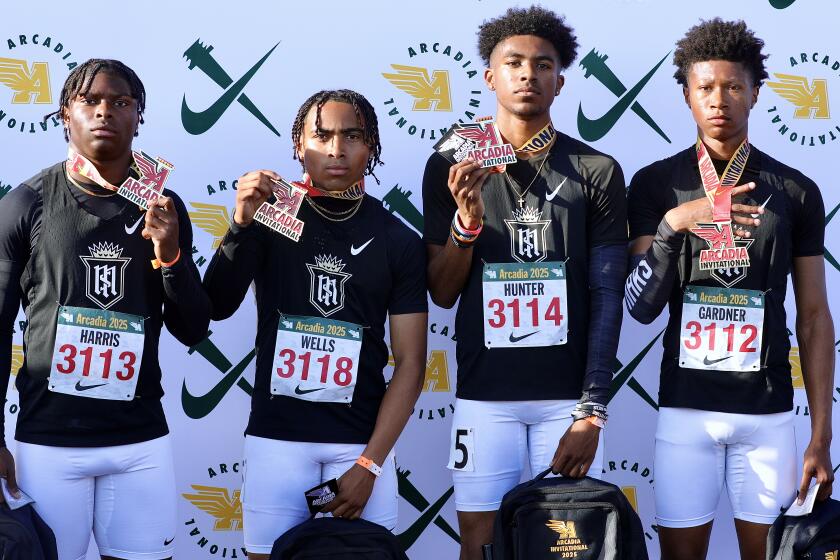Join a Bowling League, Save the Nation : Some top thinkers are looking not just at the family but at civic associations as the key to national greatness.
- Share via
People often ask me, as they probably ask their hairdresser or pharmacist, why America is so far off track. They wonder what they can do about it. Next time this comes up, I think I’ll tell them to listen to Prof. Francis Fukuyama, a sharp-eyed social scientist who works for Santa Monica’s RAND Corp. He agrees that America is in trouble, but the reason may surprise you. It’s not really the bemoaned decline of family values that the politicians harp on ad neauseum--it goes deeper than this. He thinks that Americans don’t spend nearly enough time doing things like joining the local bowling league.
Sound goofy? It’s not; Fukuyama and like-minded colleagues are serious.
Back in the 19th century, French genius Alexis de Tocqueville wrote admiringly about the seemingly insatiable appetite of Americans for joining clubs and groups and leagues and lodges, and--please let us not forget--for reading newspapers. This American propensity to reach beyond the fabric of the family, to link up with others in a civil culture, is not only at the core of America’s success as a political culture, it actually propels the economy, argues Fukuyama in his new book, “Trust: The Social Virtues.” It is why “high-trust” societies like Germany and Japan and (until very recently) the United States have come so far: Their people accomplish more economically because they are used to working together socially, whether (in American terms) in church groups or the PTA or in the Elks or, yes, in those infernal bowling leagues. But here’s the hitch: Authoritative studies now suggest that Americans are becoming the individualists that they’ve always been reputed to be, and are dissociating in droves.
Harvard University’s Robert Putnam, in the scholarly monograph, “Bowling Alone,” reports that attendance in all sorts of volunteer groups, whether the PTA, the Elks, the League of Women Voters, the Red Cross, the Boy Scouts or the Shriners, has been flagging. Even church organizations are losing membership. Writes Putnam: “Voter turnout, newspaper readership, membership in choral societies and [sports] clubs--these were [once] the hallmarks of success. In fact, historical analysis suggests that these networks of organized reciprocity and civic solidarity, far from being an epiphenomenon of socioeconomic modernization, were a precondition for it. But every year over the last decade or two, millions more have withdrawn from the affairs of their communities.”
As Putnam notes his whimsical but telling anecdote, more Americans are bowling than ever before but attendance in bowling leagues has steadily declined. This increasingly anti-social pattern holds across the board. So, even if every torn-asunder American family was stitched back together overnight and every single-parent family doubled in parenthood size just in time for Thanksgiving, America would not be out of the woods.
“Hey, I’m basically a family values guy,” says Fukuyama, married with three children. “But the family is no panacea. In fact, sometimes the family can be too strong.” In both China and Italy, among other places, an overly restrictive family structure puts roadblocks in the way of large-scale economic development, he says.
“What’s at least as important as family structure,” says the author, whose previous book, “The End of History and the Last Man,” challenged post-Cold-War thinking, “is these volunteer organizations. No, not the self-seeking lobbying groups such as the NRA or the Sierra Club, but those intermediate institutions that Tocqueville wrote about. All this beyond-the-family social activity constitutes a culture’s social capital. It’s people reaching out and building avenues of trust from one group to another so as to avoid the extremes of, at one end, state gigantism or, at the other, family atomization. This accumulation of social capital can be a powerful force.”
Conversely, when a “delinquent community” fails to maintain a civic culture of connectedness, people will join whatever they can find. Warns Fukuyama: “In delinquent communities, the strongest community structures tend to be criminal organizations. . . . Mafias and neighborhood gangs have appeared as a major form of social organization precisely in places like southern Italy, the American inner city, Russia and many sub-Saharan African cities, which lack social capital.” Ring a bell?
It is this Tocquevillian honor guard of civic associations that has fueled America’s greatness, but which is now in serious eclipse. What can be done? The answer is almost breathtakingly simple. Says Fukuyama: “In the past, people said, ‘Go out and vote to save democracy.’ Well, maybe; but at least as important is for people to go out and participate in voluntary organizations. Social capital, just like economic capital, will be depleted if not periodically renewed.”
So, you want to help your community, you want to save Los Angeles, save California, save America? Here’s what you can do: Join something and participate regularly. Stem the erosion of trust. Build up that national-trust account. Do it now. And get your friends and neighbors to join something, too. For, if we believe thinkers like Fukuyama and Putnam, not to mention Tocqueville, we have the power to make American great again.
I like that message. Don’t you?
More to Read
Go beyond the scoreboard
Get the latest on L.A.'s teams in the daily Sports Report newsletter.
You may occasionally receive promotional content from the Los Angeles Times.










